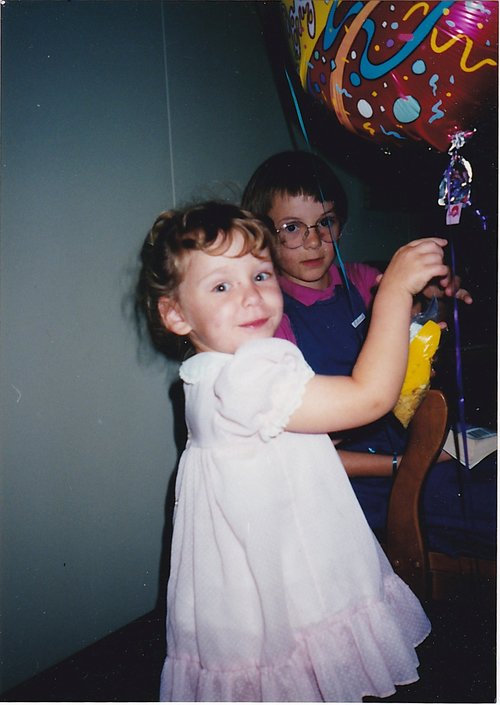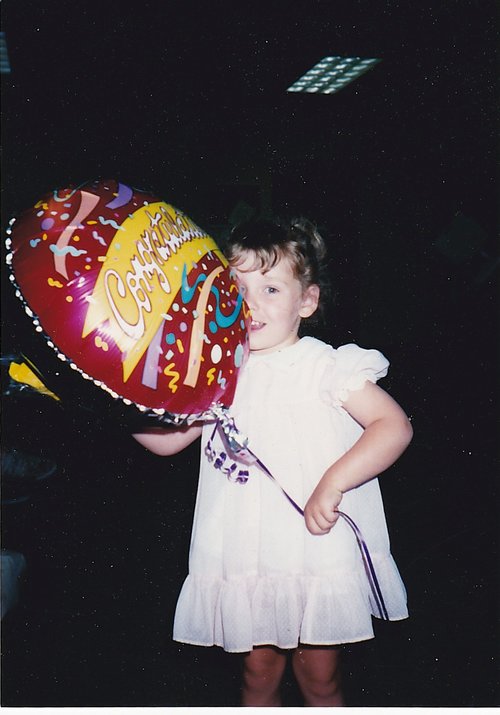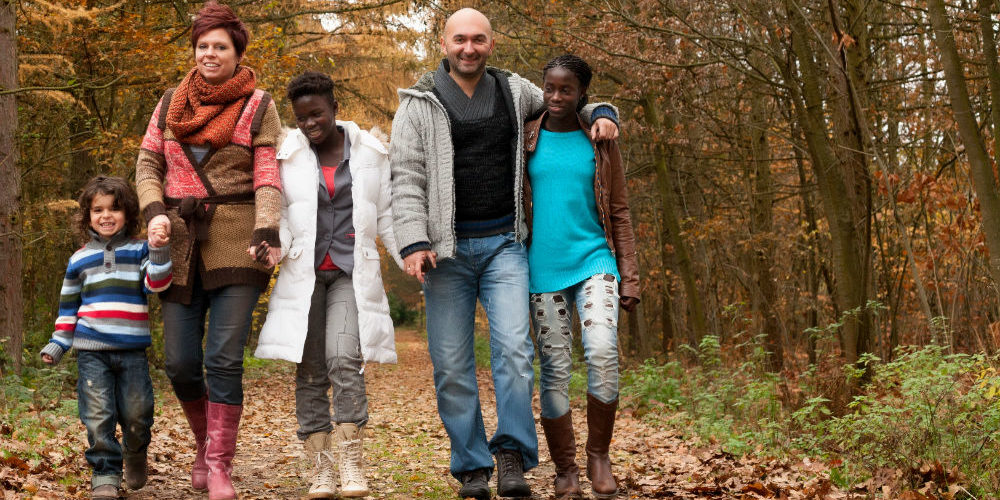Years ago, my mother had a bumper sticker on the back of our minivan. It read, “Adoption – a beautiful way to create a family.” I always thought that was the best way to describe adoption. The thought of how everything seemed to fall apart just to fall into place, always seemed to guide my path of faith.
What does adopt mean? I do not think there is any one way to define adoption. Adoption embodies a world of meanings. To adopt a child is to plant a root. The roots of adoption weave themselves through generations. They plant themselves in souls and hearts while structuring love into a solid foundation.
The roots of adoption often find themselves binding cultures and traditions as well. I have a sister who was adopted from Korea. She didn’t speak a word of English and my parents didn’t speak a word of Korean. They immediately poured over books about Korean words, culture, foods, and recipes. They went out and found grocery stores that sold these ingredients and schools they could bring her to learn English. They found people who could help teach them Korean. My father shared a love for Kimchi with my sister, Lynette. They also introduced soy sauce and rice or Asian-inspired meals once she came. Her ability to be comfortable and not to lose her identity was important to them. Six months after my sister Lynette arrived, they adopted my sister Angela. My mom poured over books about the best skin and hair products for young black girls. She even went to black beauty salons so they could teach her different hairstyles. My parents sought out stylists to help with the hair of my black sisters. It was important to my parents that their children identify with their cultures. My parents made sure that their children knew of holidays such as Kwanzaa.
It went both ways though. My sisters adopted my parents’ cultures, their religion, how we practiced our faith, camping every summer, and laying on our beds until our dad woke us up on Christmas morning. My father was an Episcopalian minister. Every Sunday, our family attended church together. Most of my siblings were acolytes. There were Saturday and Thursday services. There were church bazaars and church dinners. Our parents were strong and accepting in their faith. They loved anyone and everyone and passed that love along to their children. Ever year was filled with lots of camping trips. We camped in the Redwood forests, along the trails of Oregon, Washington, and California. Our childhoods knew the outdoors very well. We knew of banana slugs, campfires, and exploring. We knew that we had to keep food outside of the pop-up tents because of bears. We knew picnics and cereals in the cold mornings with flannels. Every year as Christmas pranced into our hearts and homes, my father would play Andrea Bocelli. Classical music and Christmas carols from classics like Nat King Cole would promenade through our halls. My mother’s home-cooked meals and baking would captivate the air with delicious smells of Yorkshire pudding, pumpkin and apple pies, and our family’s infamous peach ice. When Christmas morning made its well-awaited arrival, all of the siblings knew the rule. As we stirred anxiously hearing our father get his and my mother’s coffee ready, we waited. We knew that their coffee came first and their time to appreciate the peace before the chaos ensued. Holidays with eight children certainly could be chaotic. The moment soon came when he would open our doors with sparkles in his wide eyes, seemingly surprised and excited that Santa had found his way to our house again. Most of my siblings still carry on with our parents’ traditions with Christmas morning.
What does adopt mean? Adoption means extended families. When my parents would answer our questions about our birth families, they would also counter it by saying they would be more than willing to help us search for our birth families. My mother always told us she would like to be there if we do meet them. She wanted to protect us in case it did not go well. She also wanted to be a part of it. She wanted to be connected to every part of our lives. When I was 4 years old, my parents took me to meet two of my birth siblings. They have kept in constant contact with them over the years. Every time my birth sister, Gabby, comes to visit with her parents, my parents also come up for a visit. We are an extended family. We all are close and share important moments together. We have a deep bond that goes beyond what most experience. My birth sister came to visit right after William was born. Her parents are very dear to my heart. They support me in all of my goals and dreams. We talk often and I consider them a second set of parents to me. They have established a very important role in my life. Every day I wake up grateful for my extended family.
Some roots are more deeply bound. The roots of adoption often are tangled in the past parts that hurt. When you adopt a child, you are adopting their start, their birth story, their traumas, their past, their present, and their future. Soon after I was placed with my parents, they were made aware that I had other birth siblings who were in foster care or state custody. My parents reached out to inquire if my siblings could be placed with us as well. My parents were willing to adopt my past; which, at that point, had a lot to do with my birth family. My parents often spoke about my birth family. It was never a secret or a taboo topic. Adoption was a constant conversation in our home in which directions took many turns, but ended at the same message; adoption was how our family was created and that in itself is a beautiful gift that we are grateful for. Some of my sisters were abused. My parents adopted their trauma. The past of your child is puzzle pieces that mold who they are. Adopting the pieces means you accept them and make an intentional decision to love the pieces however they may fit. My parents adopted the roles of fighting and advocating for their children. In the ’90s, my parents sought out to adopt my younger sister, Shannon, who was also black. At that time, there was a large pushback from the black community to white families who wanted to adopt black children. The local Department of Human Services did not want to allow my parents the privilege of adopting Shannon. My parents fought the case and went to court over it. They adopted the obligation of proving to the state of California that they were fit for parental roles as a transracial family and that Shannon’s identity and culture would not be erased from her life. My parents won the court case.
They also adopted roles of assumption. There were many doctor’s appointments where we would have to discuss the topics of substance abuse in utero. Most professionals presumed that we suffered the exposure from my mother. It was not as important for my mother to correct their presumptions, as it was to make sure they had a clear understanding of what effects we had and what services we needed. Adoption also created roots of judgments. Our family was often analyzed through the lens of outsiders. My parents’ choices to adopt, their parenting techniques, their children’s symptoms and behaviors, and their own reactions were scrutinized constantly. Other family members, friends, acquaintances, and other people who crossed their paths judged them. I remember my mother’s tears. I remember my father shutting their bedroom door when she would cry. I heard him consoling my mother. I heard their prayers. I heard their anguish and desperation for kindness, understanding, and compassion. Adoption was a lonely road at times. They walked down the road together, supporting one another. They walked down the road while others watched. They stumbled while people watched. They got back up while people watched. They kept walking as people watched, no matter the changes in weather or direction. It’s amazing how easily judgments were passed. What was even more amazing was the quiet grace my parents gave back to the roots of judgment. They chose to spend their time investing in the abundance of love for their family and the ones who supported them.
The roots of adoption mirror themselves in our reflections as well. My mannerisms are identical to my mother and father. If I didn’t tell you I was adopted, you never would have guessed. The same component is found in all of our siblings. We have all taken on mannerisms from our parents and family members. Those who have experienced adoption know how the saying, “DNA doesn’t make family, love does,” rings true. Even though we may be different races, our family has its own unique characteristics and mannerisms. We share common mannerisms and are very much a part of one another. Our family’s roots have grown stronger over time, and it is an absolute joy to watch all eight siblings and our parents be around one another. The similarities are striking.
Roots of adoption also sprout and flourish our dreams and our futures. I remember, as a little girl, knowing that I myself would adopt a child one day. My husband and I are now active participants with our local Department of Human Services offices. We host Annual Foster Care Drives; rallying for items we know our youth and teenagers need. Once our son is older, we will be taking the next steps to adopt. My husband also came from the roots of adoption. His mother was given to a Catholic charity in the ’50s and placed for adoption. He has an uncle who was also adopted. We both came from homes that saw the importance and positive impact of adoption. Our shared love for our roots helped bind our own family and marriage.
What does adopt mean? If you look up “adopt” in the dictionary, it says, “legally take (another’s child) and bring it up as one’s own.” I disagree. I am my mother’s daughter. I am my father’s daughter. I am their flesh and blood. They have bled for me. They have sacrificed and given their lives for me. I am their own. I am their child. I am a source of light and amazing energy. I am hand-crafted by my parents. I have been molded by their patience and virtues. I have been crafted by their morals and unconditional love. I was woven into a family that is tightly-bounded by acceptance, mistakes, love, forgiveness, hope, and more love. Adoption means I was given roots to grow from.
The beauty of roots is that you don’t know where they will take you. I have seen roots lift concrete pavements. I have watched roots design new highways and outline boundaries. I have seen roots plant themselves in the most undesirable sceneries but still force their beauty to be seen by those around them. I have watched roots search for life and travel distances until life has been found. I have seen roots paint futures for other roots. I have watched roots be gentle. I have seen them be fierce. I have seen roots bow down and I have watched unwavering roots. To adopt is to root everlasting impacts. Our world is full of unique ways in which it works. Adoption is how our family was created. Adoption gave eight children who might not have a chance, something greater than they could have dreamt of. Adoption gave two parents more love than they would know what to do with.
November is National Adoption Month. Each November, I spend this month interviewing families for my blog. It is absolutely fascinating and remarkable to hear the stories of how so many people all across our planet have been touched by the angel of adoption. The stories I am honored to share always set fires in my soul with inspiration and gratitude. This month as we celebrate all that adoption is and encompasses, I want to hear from you. Adoption is a personal story. What has it meant for you and your family? In your life, what have you adopted? What does it mean to adopt?
The pictures below are of my adoption day when I was 3 years old.


Are you and your partner ready to start the adoption process? Visit Adoption.org or call 1-800-ADOPT-98 to begin your adoption journey. We have 130+ years of adoption experience and would love to help you.




